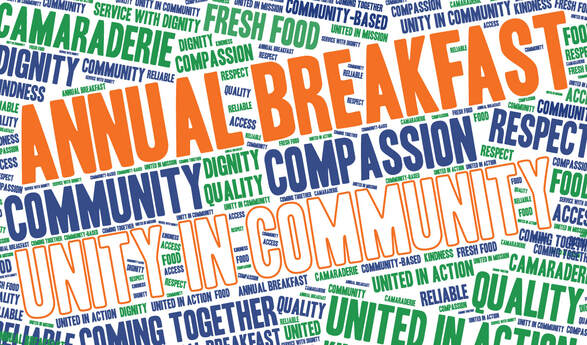 It was a rainy, blustery morning on October 26, but we were warmed by the spirit of community at ONT’s Annual Breakfast. It was wonderful to gather safely in-person with new and old friends while still broadcasting to our audience at home. Dana Marshall emceed our morning and led a conversation with Pam Kealey of Newburyport Public Schools and Tress Ricker, ONT's Food Resource Advocate, about what they are hearing from our guests and neighbors who are experiencing food insecurity first-hand. Tress and Pam shared a critical perspective of community members who are living with food insecurity every day. It is crucial for us to continue to solicit feedback to ensure we are truly meeting the needs to inform our collective work going forward. ONT’s Executive Director Lyndsey Haight shared an update about vision for a region where universal food access is a reality and ensuring that we as a community are doing more than keeping people hunger-free. Lyndsey shared about how the creation and expansion of ONT’s state-of-the-art markets in 2016 and 18 have reached thousands of people and serve as a model to reshape community-based food safety nets across the country. Every day someone shops or dines with Our Neighbors’ Table is a day they are hunger free. And every day they know they can count on us to catch them if they fall tomorrow, if something goes wrong and even in a global pandemic – is a day they can feel food secure. The Breakfast was also a time of celebration to recognize our 2021 Community Champions. The Town of Salisbury was honored for their partnership and commitment to food security as a social and economic issue that affects everyone in their community. Bill Ginivian and Clarissa Taylor were recognized as Community Champions for their outstanding volunteer service and leadership within the ONT community. Congratulations to all! Special thanks to our sponsors for their generous support. By uniting together as a community, our sponsors, donors and partners made it possible to provide nearly 80,000 meals to our neighbors! The recording of the broadcast is available to watch. The live program content starts at the 50 minute mark.
0 Comments
By Lyndsey Haight, Executive Director, Our Neighbors' Table
“I’ve done everything I can to not have to come here. I’m sorry. I will only take a few things and hopefully won’t have to come too often.” These are the words that we hear almost universally from people coming to get food at Our Neighbors’ Table for the first time. The sacrifices guests make before they walk into our doors for the first time - from cutting out fresh fruits and vegetables, to putting groceries on credit cards, skipping prescription refills in order to buy groceries, or simply not eating for days on end so their children can eat – are substantial. Yet, walking through the door to ask for help is never easy. If you’ve been to an ONT volunteer orientation, you’ve heard the stories; if you’ve volunteered at ONT, you’ve witnessed the guilt, shame and fear first-hand. You also understand it is our number one goal to make every single person feel welcomed and to lift the fear and feelings that may prevent them from coming back. ONT’s work was founded on the values of Service with Dignity, Community and Respect. Our founders welcomed their neighbors to break bread together so no one went hungry, but more importantly to ensure no one felt they had to go it alone. For 28 years, ONT has been powered by helpers doing what they can, sharing what they have, and lifting each other up along the way, resulting in, perhaps, the first food-secure city in the nation. As they say, rising tides raise all ships. Even after nearly three decades, the perseverance of these values takes work. In 2011, we took the time to articulate them, make them part of our long-term strategies. In 2015, we began and continue training all of our staff and volunteers – new and tenured – to put these values into action. Every day, we ask ourselves if our decisions are aligned with these values and we expect our guests, our community to call us out if we go astray. I love to meet new people and welcome them into our mission. Giving tours and sharing our work is a favorite part of my job. I’ve had the opportunity to sit with new guests and donors alike. And there is a striking difference in the conversations. While just about every guest tries to qualify their request for help, almost every single tour includes the questions: “How do you make sure people really need the help? Do they have to qualify?” In the course of 20 years, I have come to see there are various experiences that compel people to ask this question. Usually, those experiences are 3rd party, stories told, of someone taking advantage of the system. The person in line at the grocery store using food stamps to buy liquor. The breeding of dependency if we let people collect welfare. Maybe they are first-hand: ‘I know Mr. So-and-So comes to your dinner every week but he has money to buy his own food’. There are lots of different perceptions about people who ask for help. It has also been my experience that one shift at ONT getting to know your neighbors who shop here for food quickly replaces those perceptions with relationships, connectedness and, alas, a sense of community. I understand all this. The unknown. A knowledge vacuum filled in with information that may or may not be based in real life, but it fills a void until something else can. But there is something else inherent in the questions about qualifying people to receive help. This question is rooted in the assumption that the help is mine to decide whether or not to share; that I have the power and authority – the right – to decide whether or not someone is worthy to receive food. This power dynamic is inevitable in every charitable food system dependent on the goodwill of a few. At the very core of Our Neighbors’ Table is the belief and practice that we are all deserving; that none of us is more or less deserving to receive help; and none of us is more or less deserving to control when and where help is given. The community invests its time and treasure in our mission because we all agree that food needs to be available to everyone and the community entrusts us to do just that. While many give to our mission under charitable motives, those who sustain our work know we are much more than a charitable food assistance organization; we strive toward universal food security, toward a just food system that serves us all. This can only be achieved when those of us who hold power over resources recognize that power and relinquish it and allow others to gain their own access. True, we carry the burden of only having resources to serve 12 communities when we know our neighboring cities and towns could also use the help. We truly struggle with this every day we turn someone away. But, we have found a way to ensure that our region’s resources are distributed and available universally and our work every day is to achieve that to the best of our ability. In the last month, we have all heard (and maybe even shouted) the cries for an end to racism and the systemic racism that permeates every aspect of American life. Many are organizing or continue their work centuries in the making, many others may be reflecting at home wondering what role might you have played, or what role you can play now. If you’re reading this, and wondering what you can do, I offer what we, at ONT, have come to know and strive to practice every day as it comes to serving our mission
Our Neighbors’ Table’s grocery programs remain open in the curbside pick-up. Our priority is and will continue to be ensuring people have consistent, reliable access to food as safely as possible.
ONT shifted to an entirely curbside model for grocery distribution on March 2020 and will remain operating in the curbside pick-up model for the foreseeable future. Guests can pre-order groceries online and schedule the time to pick-up. If you cannot order online, please call 978-388-1907 to place your order. Groceries will be delivered directly to your car during your scheduled pick-up time. If you cannot leave your house, please have someone pick up for you. If you need delivery, please call 978-388-1907. Ordering is for next day pick-up. We're sorry but we cannot process same-day pick-ups. Please place your order by 3:00pm the day before you want to pick it up. New guests must fill out a guest registration form before ordering and allow 24 hours for processing. Curbside pick-up will be available at the following locations. Amesbury Market - Our Neighbors' Table, 194 Main Street
Wednesday Meal - Main Street Congregational Church, 145 Main Street, Amesbury
In addition to ONT's programs, we are maintaining an updated list of food resources across the region. You can view this list online or download a copy to your computer. Remember to check back regularly as things continue to change. To do our part to minimize risk of infection and to allay fears of exposure in our community, ONT is taking the following steps:
How can you help?
Lyndsey Haight, Executive Director, x11 Lori Townsend, Program Director, x12 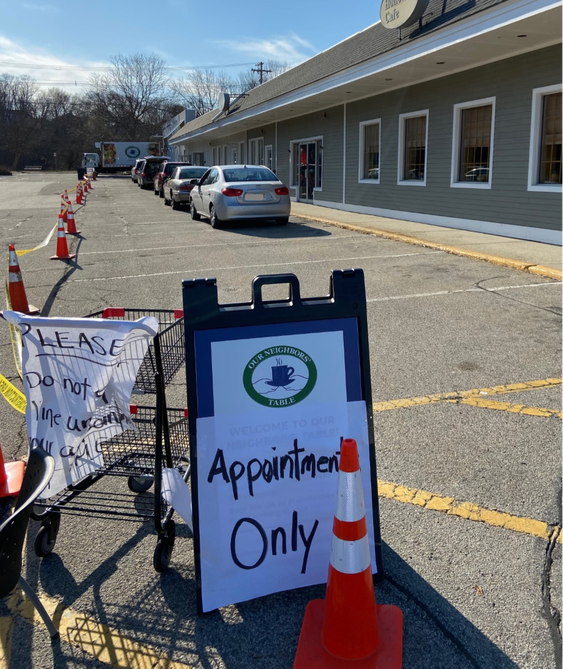 Dear friend, None of us could have dreamed of the reality we all face today. Without notice, our schools had to close, local businesses had to be shuttered, and life seemed to turn completely upside down. In the last 2 weeks, I've spoken to longtime ONT volunteers who are afraid to leave their homes; a mother who, along with her husband, has just lost her job and is worried about keeping it together for their 2 children; a woman who was supposed to start her job as a census worker and now has no income to pay her rent; a retired veteran who lives alone, with no children, who is glad he can come to ONT, even if it's just pulling up in his car, to see some friendly faces. These conversations remind me that Our Neighbors' Table is more than just the food on our shelves, ONT has always been a source of community and connectedness. Something we are all craving right now. My late grandmother always had a fondness for lighthouses. In these stormy times, I want you to know ONT is here to be a beacon of hope and light. All of our work over the last 28 years has prepared us to be a lighthouse for our community. And now, I need to ask everyone who can, to pitch in. If you can give $10, give $10. If you can give $1,000 or more, now is the time. Join our Breakfast Club to make your donation in monthly installments. Our priority is and will continue to be ensuring people have consistent, reliable access to food, and, as always, to do it with kindness. To do this we have had to completely change our program operations to keep our guests healthy and safe. After spending 4 years growing our markets, this week we had to close their doors and shift to an exclusively curbside model with very little preparation time. Here’s a glimpse of what that change has meant in 1 week:
These last two weeks were hard, but now the real work begins. Now we will be serving a surge of new neighbors who face economic uncertainty in the coming weeks and months. In addition to the 600 households we were already serving each week, we've already registered 65 new households (with nearly 200 mouths to feed) just since March 16. Our neighbors are counting on ONT when they have nowhere else to turn. Are you in a position to help? Every dollar matters, please give what you can. Be well and take care, Lyndsey Haight Executive Director Summer 2019 marks the half-way point for 2020 Strategic Plan: A Path to Food Security, which charts our course to raise awareness of food insecurity in our region, build ONT’s partnerships and capacity to address need, and, most importantly, to ensure that the communities of Amesbury, Newburyport, Salisbury and Merrimac can become food-secure. These are ambitious goals and it sometimes feels daunting to think we could achieve them in just 18 more months. However, now seems like the perfect time to recap how far we’ve come in the last year-and-a-half to motivate us to the finish line.
Creating a Food-Secure Region is a marathon, not a sprint. Some miles will be tough, while others are a smooth, flat coast (our Run Out Hunger team members will agree down-hill can be just as hard as up). But, through partnerships and solidarity with our neighbors, we are getting closer and closer to our goal. Click on the below photos for further details about ONT's progress to date! 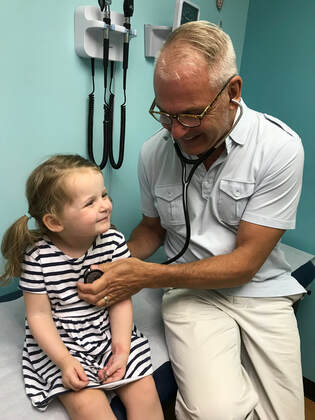 In 2018, ONT conducted a regional needs assessment to better understand for whom and why food insecurity continued to be a significant problem. Nearly half of those testing positive for food insecurity were parents or grandparents with children 0-18 in the home. For these families, the number one reported reason for worrying about or going without adequate, quality food was not having enough money to cover the expenses of living, including being able to buy enough food. In the survey, ONT asked if these families were using any private or public programs to help keep food on the table. These responses were just as troubling:
With this information in hand, ONT has set out to reach these families and we’re starting where we know most families go: the pediatrician’s office! Thanks to Massachusetts’ strong focus on access to health care over the last 15 years, nearly all children are seen regularly by their pediatrician. In 2018, ONT partnered with Newburyport-based Children’s Health Care to ensure that screening for food insecurity would be an integral part of providing preventive care to children across our region. The ONT-CHC partnership builds on a growing interest in the health care field to integrate “Social Determinants of Health” into health care. These are the non-medical factors that can influence someone’s well-being, like poverty, pollution, or community violence, and, research shows, has strong correlations to increased illnesses and costs of health care. In early 2019, ONT trained 75 CHC staff – physicians, nurse practitioners, medical assistants and even office staff – on the prevalence and effects of food insecurity in our region, how to discuss concerns with caregivers in a compassionate manner, and, most importantly, how to connect families with ONT’s Food Resource Advocate to ensure they will get connected with helpful and much-needed food resources. Food insecurity is a community problem, and it is also a very personal matter. Parents are guarded and, for many reasons, fearful of talking about their struggles. Through this partnership, ONT and CHC are building trust and offering real solutions to local families. The goal: no more families fall through the cracks and every child and their parent have the nourishing food they need to thrive. New Data: National Food Insecurity Steadies while Northeastern Essex County Need Increases5/20/2019 Feeding America and the Greater Boston Food Bank have just released updated data on the rate of food insecurity across the US and Massachusetts. According to Feeding America’s “Map the Meal Gap” report:
So, that’s good news right? Well, unfortunately, the picture in northeastern Essex County seems to be bucking the trend. First, let me provide a little context. Since 2015, ONT has worked with data estimates of 6,000 food insecure individuals in northeastern Essex County (1 out of 8 children; 1 out of 5 seniors) across our service area (GBFB, 2015). However, the latest data provided to ONT from Greater Boston Food Bank indicates a regional increase to 6,500. While that may not seem like a huge number, it’s a more than 15% increase in need across 5 of the 10 Massachusetts communities we serve. While it may come as a surprise to many, the cities of Amesbury and Newburyport have consistently been home to the highest number of food insecure individuals in our region, with Newburyport topping the charts. Here are some of the facts: 
When you’re in a growing economy, there is a mindset that “a rising tide raises all ships.” However, it’s important to remember that a growing economy can also result in the cost of living outpacing wage growth, especially for those living on fixed incomes or working in our local service industries. Massachusetts, according to Feeding America, now has the highest food costs in the country, leaving local residents with an average $21 shortfall to afford 3 meals a day. Let me rephrase that: A family of four would typically consume 84 meals in a week. But current wages, cost of living and food costs now force that family of four to live on only 61.6 meals for the week, meaning everyone can only eat twice a day, or, most likely, mom and dad will alternate days eating so their children don’t have to go without. “Sorry, Mom, it’s Tuesday – it’s Dad’s turn to eat.” This rise in need likely does not come as a surprise to those of us providing food or financial assistance; teachers who see students come to school hungry every day; or emergency room physicians who see the spike in illness related to malnutrition. But for many, this need – right in our backyards - remains hidden in the shadows.
So what can we do – collectively – to make sure that our friends and neighbors and colleagues are getting what they need to get on the path to food security? Step 1 is understanding: We must better understand the local barriers that prohibit people from accessing adequate, quality food to support a healthy lifestyle (the USDA definition of “food secure”). Last year, in partnership with members of its Food Security Advisory Group, ONT surveyed local residents to measure rates of food insecurity and understand its causes. In a diverse sample including individuals and households across the age spectrum, 25% (1 out of 4) tested positive for food insecurity. Among them, 55% reported employment as their primary source of income, yet 70% reported “not enough money” as the primary obstacle to keeping themselves and their family fed. The other alarming statistic we’ve uncovered is the gap between those who need help and those who are getting it. In recent years, various organizations have begun measuring the SNAP Gap – the percent of people who are eligible for SNAP (aka food stamps) but are not getting it. Nationally, the SNAP Gap stands at roughly 15%. In Massachusetts, it’s about 25%. In ONT’s service area, it’s 60%! Sixty percent of people who are eligible for SNAP are not getting the benefits they need. As we work with our local partners who are also providing food assistance, that SNAP Gap is consistent with how many people in need in Newburyport are utilizing services and programs available. Why is this important? It requires us to examine what services are available and how they are delivered. We ask ourselves these questions every day:
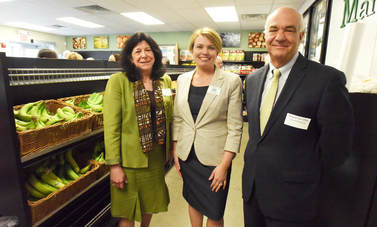 ONT’s 2020 Strategic Plan lays a Path to Food Security, focusing on the communities of Newburyport, Salisbury and Merrimac, where current data demonstrates greatest need. The core component of ONT’s success in creating a food-secure Amesbury and expanding regional food security is its strategic partnerships with public and private institutions and with private citizens. ONT has convened local leaders to form the Food Security Advisory Group. Members include Anna Jaques Hospital, Children’s Health Care, Mayor Holaday (Newburyport), Mayor Gray (Amesbury), superintendents and school personnel from the Newburyport, Merrimac, Pentucket and Triton school districts, the Merrimac Police Department, Pettengill House, Newburyport and Salisbury Councils on Aging, and the Greater Boston Food Bank. Over the last 8 months, the Food Security Advisory Group (FSAG) has convened and declared food insecurity an important issue in our region. More importantly, the members of the group have agreed that time and resources need to be dedicated to understanding and addressing hunger and food security for all residents. Working through its Regional Assessment Working Group, member agencies and municipalities have launched the first phase of our regional food security assessment. Surveys are being administered at Anna Jaques Hospital, Children’s Health Care, local Councils on Aging, libraries and online to start to understand where and why local residents experience barriers to getting enough food and getting enough nutritious food. “Current research shows that 80% of illnesses and hospitalizations are tied directly to the food that we eat,” shares Dr. Gail Fayre, Chief Medical Officer at Anna Jaques Hospital. “Our joint efforts will help inform best practices to address local need.” Over the next two years, ONT and the FSAG will focus on uncovering areas of unmet need and developing creative strategies to ensure no one falls through the cracks. “Our region is fortunate to have a number of food resources available. The challenge is understanding why people do not or can not participate in these resources and if the existing programs are best suited to meet their need,” states Lyndsey Haight. “But we are deeply encouraged by the interest and commitment of local leaders to solve this problem.” For more information about the Food Security Advisory Group or how you can get involved with the regional assessment, please contact ONT Executive Director, Lyndsey Haight, at [email protected]. Like most volunteers, Justin found his way to Our Neighbors' Table with a recommendation from a friend. Justin was no stranger to helping around town. And, as it turns out, he was no stranger to Our Neighbors' Table.
Justin jumped right into helping ONT, immediately boosting the annual Fill-A-Cruiser food drive with appearances from Wally the Green Monster, the Celtics and Patriots! Justin has been so passionate about helping us get out word of ONT's work - from celebrity appearances to spots on iheart radio to ONT's logo on race cars around the country. So, what is it that makes Justin so passionate about ONT??? Last year, when our long-time volunteer Jim Smith shared his personal story, it inspired Justin to share his own. I'll never forget the afternoon sitting in our office listening to Justin tell me the story of his childhood. To this day, I've heard it, I've shared it, I've watched Justin tell it over and over, and it still moves me to tears. At first, my heart broke for Justin and his family. But now, my tears are tears of hope. On those tough days when a new guest walks through our door in dire straights, or the market refrigerators break down, when the little things start to pile on, Justin's story and his courage in sharing it bring us strength and hope. Strength to persevere and continue to spread our mission. Strength to lend to our guests who are struggling through a lot of tough days. And hope, that they too are moving on to a brighter future like Justin. If you ever wonder if donating a box of pasta, giving an hour of your time, or generously supporting our programs is making a real difference, this video is living proof. On behalf of ONT, we thank Justin for his bravery in sharing this story. And we thank you for taking the time to hear it. With great hope and appreciation, Lyndsey Haight Executive Director Help us provide meals and rebuild lives with your gift today! ONT Executive Director Lyndsey Haight sat down with Dot to hear about her experiences as a guest and volunteer at Our Neighbors’ Table. 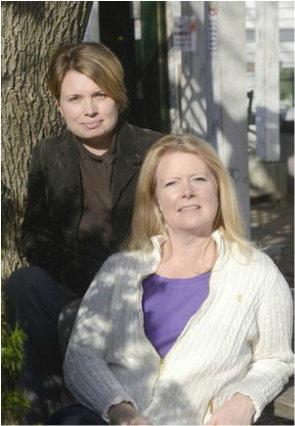 LH: What brought you to ONT for help? Dot: I was going through a divorce and it took 3 years to start receiving child support. I was working a 30-hr/week job and had a daughter that had special medical needs that prohibited me from getting a second job. Friends helped me out a lot but they are not an unlimited resource and they have their own lives and needs to worry about. One day it came down to either putting gas in my car to get to work or buy food. LH: How did you find ONT? Dot: I have two teenage kids. They had volunteered for ONT as part of their school. We lived in Amesbury so we were aware of the organization. LH: What was it like to come to ONT for the first time? Dot: I was so ashamed. I felt so humiliated on the drive over. I come from Manchester, MA, where people don’t think about getting help or the possibility of needing help. A lot of people were saying 'you should be getting a second or third job' but that wasn’t a possibility for me. The day I came to ONT, I walked in and met Lori [ONT’s Pantry Director]. She chatted with me about regular things, like I had just met her in the grocery store. She treated me like a normal human being. After that, I left with my head held high. I felt like I left with my dignity intact – on my way over I felt like I was losing it by asking for help. LH: How often did you use the programs at ONT for help? Dot: I came to the pantry every Saturday for close to a year and then once in a while when things got tight. LH: How did it make a difference for you? Dot: Just to know that there was food in the cabinet to make a meal and to be able to feed my children a nutritious meal. I have type 1 Diabetes so it meant a lot to be able to come and get wholesome food and meat. It’s important for me to eat quality food to control my diabetes so that I can take care of myself and, as a result, take care of my kids. As money got tighter, the food I had to choose at the grocery store was the “cheaper” more processed food, not really what we should be eating. Coming to ONT didn’t eliminate our financial constraints, but the meat we could get and the holiday meal program made a big difference. Knowing that if I was going to someone’s house for the holiday and could actually bring something to share, a pie or a dish – like a normal person – meant a lot to me. LH: Can you talk a little about your experiences here at ONT? Dot: I was standing in line and the woman in front of me was an attorney with three small children and a sick husband. She had lost her job. She never expected to be wanting for anything. But life circumstances happen – they can happen to anyone. I had to put my pride in the back seat. I was raised that you don’t ask for help; that it’s the worst thing to ask for help. It was actually healing for me to be able to ask for help and to leave with my pride and dignity intact. I came for the holiday program once and saw two women I knew well from town. I couldn’t come in; I made my sister come and get my food. The parent of my son’s friend was volunteering here. I didn’t want to come when she was here, and then I found out that they come here too. LH: Did your children know you were using a food pantry? Dot: At the time, my son was 14 and daughter was 17. They knew what our financial situation was like. It’s in the little things every day. We rented an apartment and got fuel assistance, so when the weather got cold, I’d tell them to put on another sweater. They knew I had to come to ONT for help. We talked about it before I came; I told them I needed to get help. I usually tried to come by myself but sometimes they would wait in the car. After some time, they actually felt a little excited each time I came home with bags of food – digging through the bags to see what I got. There seemed to be a sense of relief – a bit different from their reactions when I came home from the grocery store. They loved making grilled cheese with the bread and cheese I got. My son, now 16, was doing a psych project for school and said he almost misses being financially strapped because it made him appreciate the little things – things he doesn’t have to worry about now. LH: Where are you today? Dot: Today I am happily remarried. We have a joint income that supports our family. When we were dating, even though he wanted to take care of us, I still came here. I didn’t want to rely on him. I have a job I love at the NH SPCA. And now I can give back. It means a lot to give back at Our Neighbors’ Table. It’s such a relief to be able to sleep at night and not worry about where our next meal is coming from. LH: Why do you want to share your story? Dot: I want people to not be afraid to ask for help. Everyone goes through it in one form or another. That energy you’re expending – that feeling of terror to think that you won’t be able to eat – you can focus that energy on working and changing your situation, or to focus on enjoying time with your children, it takes the joy out of your life, getting this help helps you put that joy back into your life and not focus all your energy on trying to dig out of this hole. I used to have a nice house; we used to go on vacations. I used to go to Plum Island to go birding or go up to North Conway to hike. But that’s gas that is otherwise getting me to work. You realize all those little things that you once had in your day-to-day life. Then to realize you can’t stop at Dunkin’s for the $2 coffee because it meant taking food out of my kids’ mouths. Your life starts to shrink. It was so all-consuming. I was making $19,000 a year so a cup of coffee was a luxury. When everyone at the office is pitching in to get pizza and they stop asking you because they know you don’t have the money – you really feel bad about yourself. There's a ripple effect of how it affects your life. LH: What would you want to say to someone debating looking for help? Dot: You shouldn’t be afraid. You will be treated with an enormous amount of dignity. The relief is worth the anxiety you felt in deciding to come. And you will leave with your dignity. Everyone can fall on hard times and usually it’s temporary. It’s important to know there’s something to help you during that time. LH: What would you say to someone who currently supports our programs? Dot: With just an item or two, you’re making a big difference. Never underestimate the impact of one person. Taking a moment to buy a couple of healthy items allows people to have good choices – it’s so easy yet such a nurturing gesture. For someone to walk in and be able to pick up the brand of pasta they would normally buy if they could, gives such relief to that guest. Just that one item can give that person that feeling of normalcy in an otherwise very difficult time. It was a big deal to get a big tube of toothpaste. The toiletries were a big deal. You think about needing food, but you don’t think about shampoo and soap until you realize you can’t afford them. |
Archives
June 2024
Categories
All
|
Connect With Us
- Contact Us
-
Emergency Hotline
(978)-835-3016
-
Our Neighbors' Table
P.O. Box 592
Amesbury, MA 01913
-
Proud member of


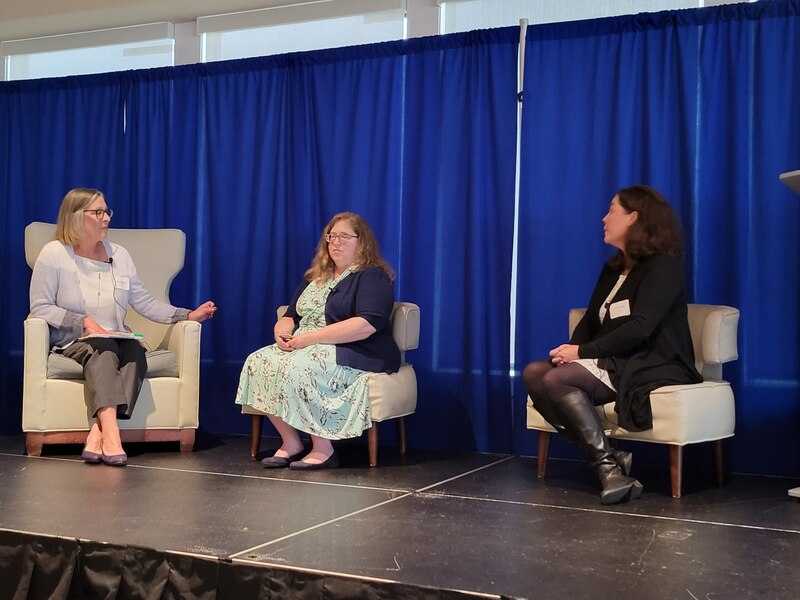
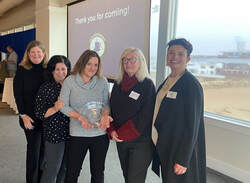
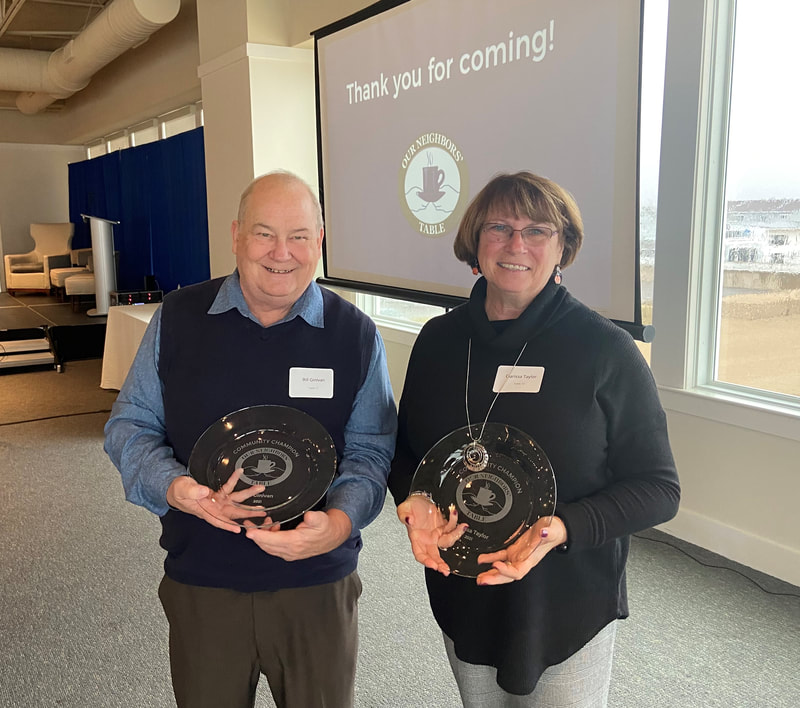
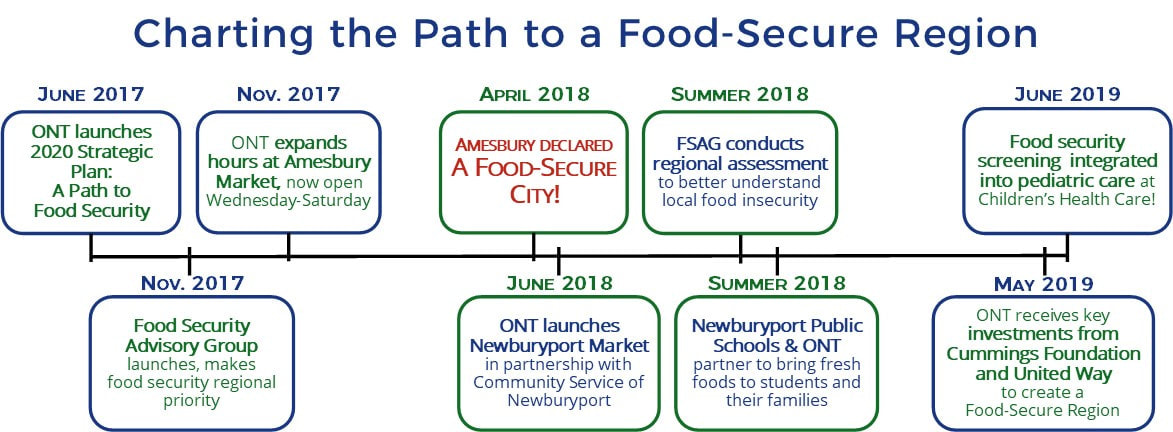
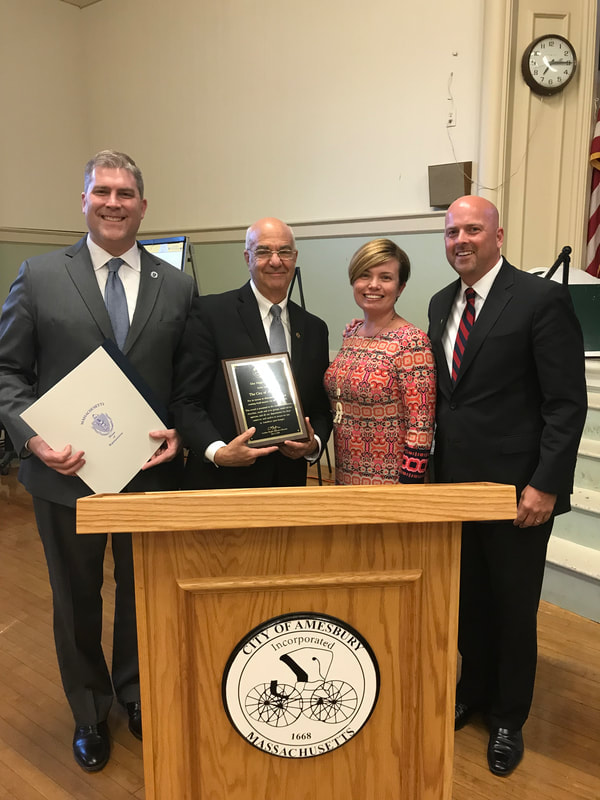
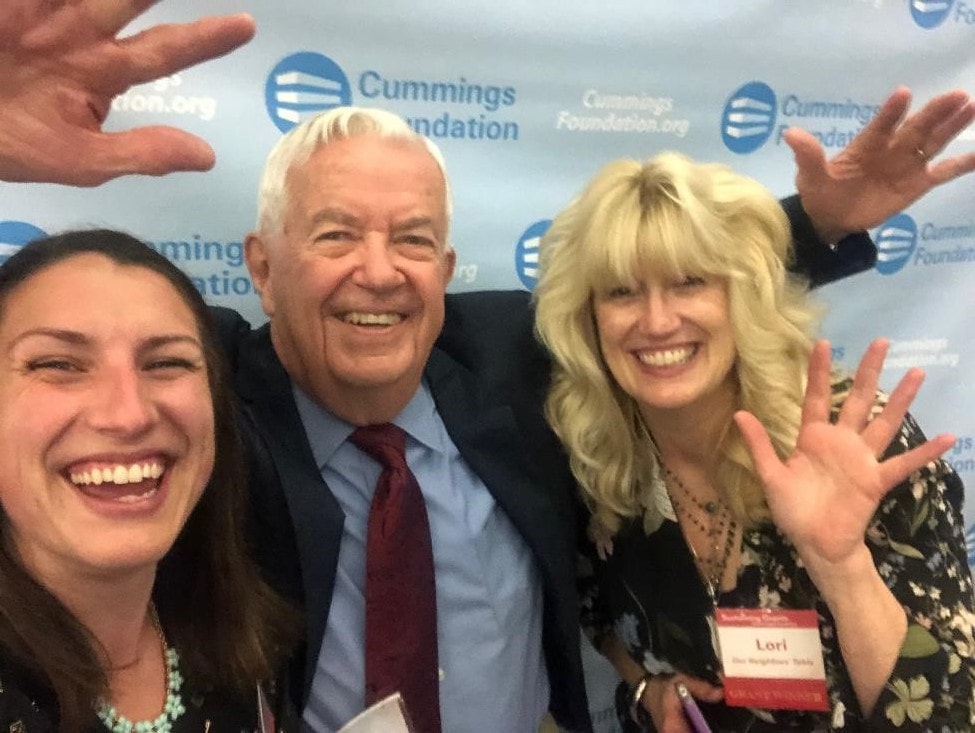
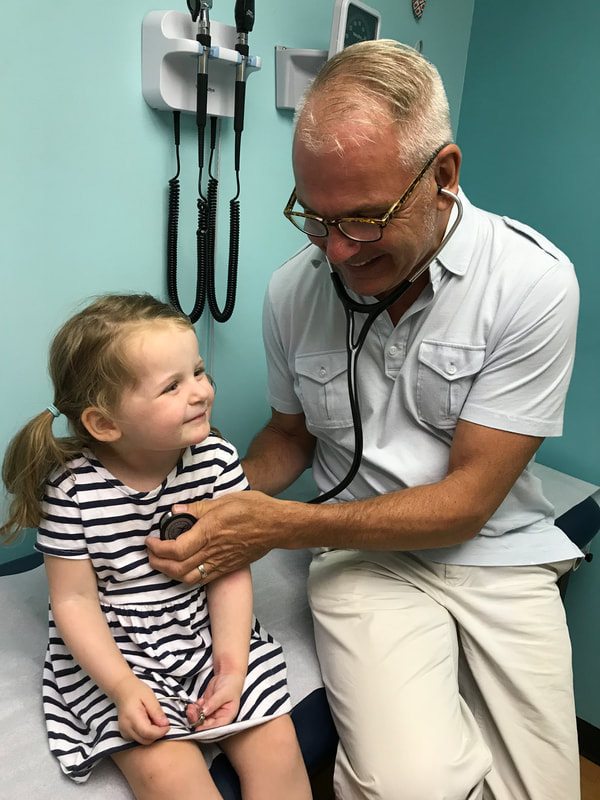
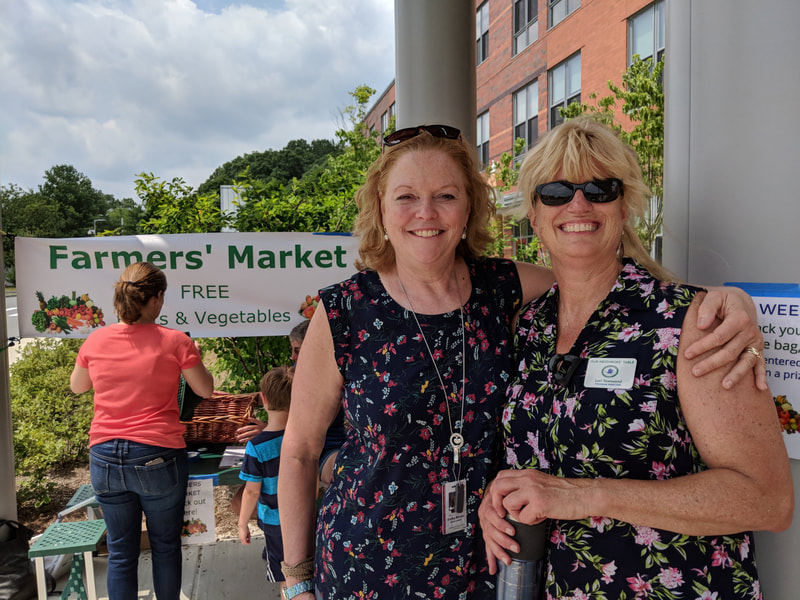
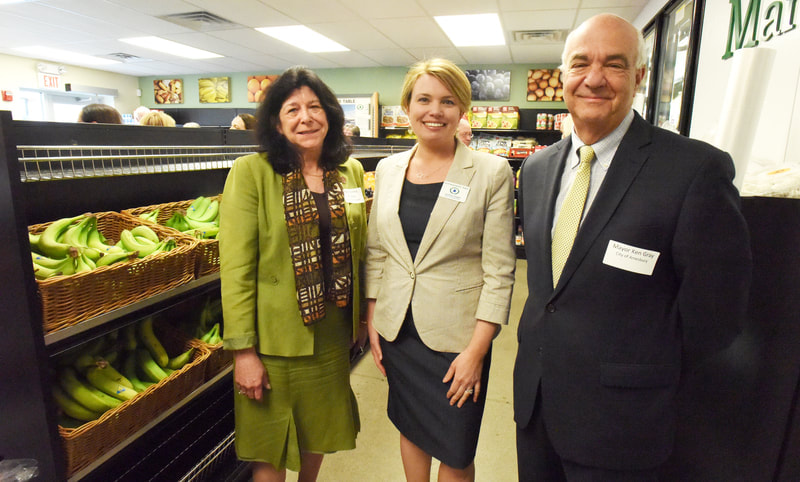
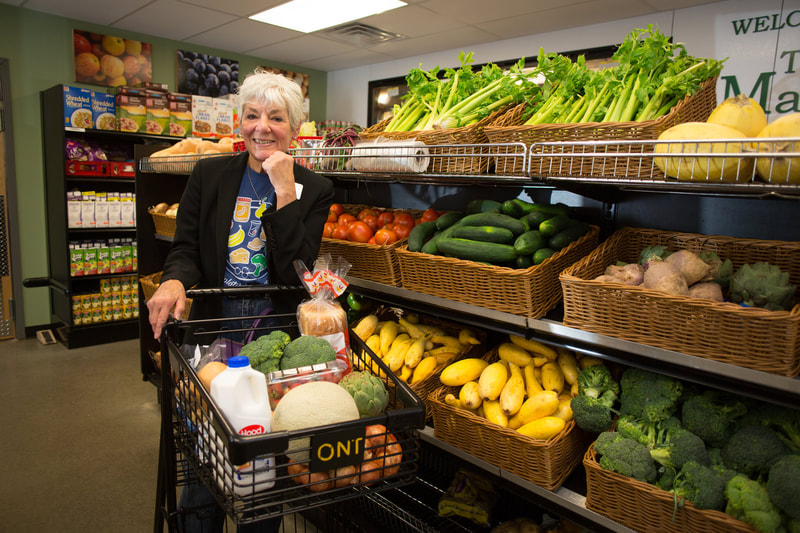
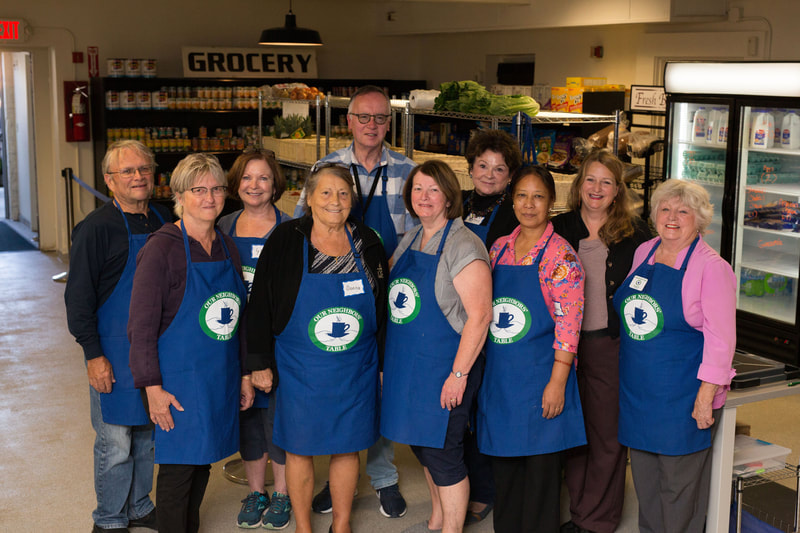
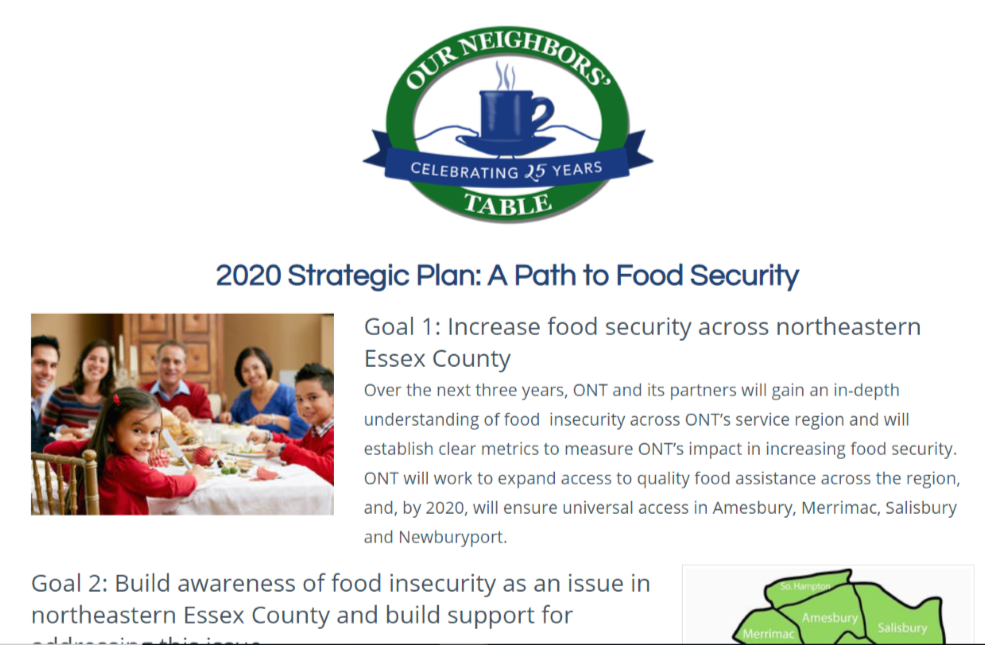
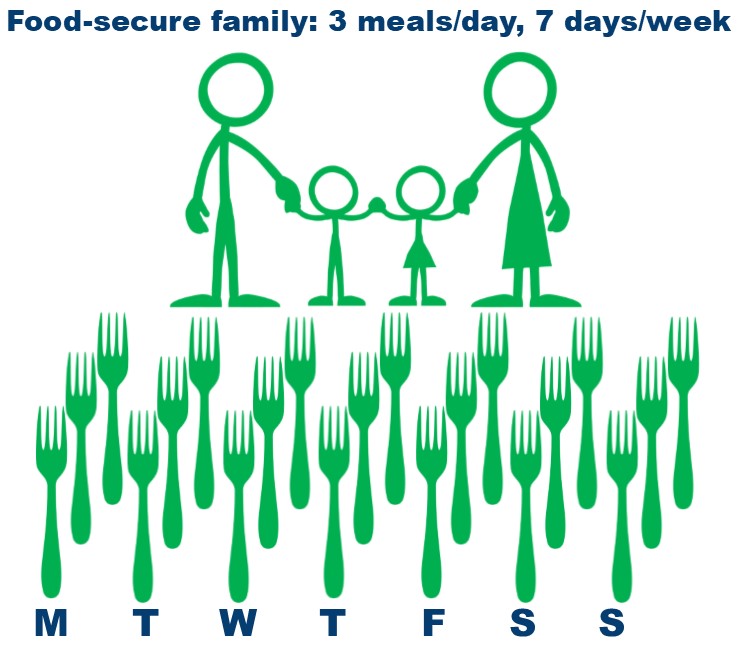
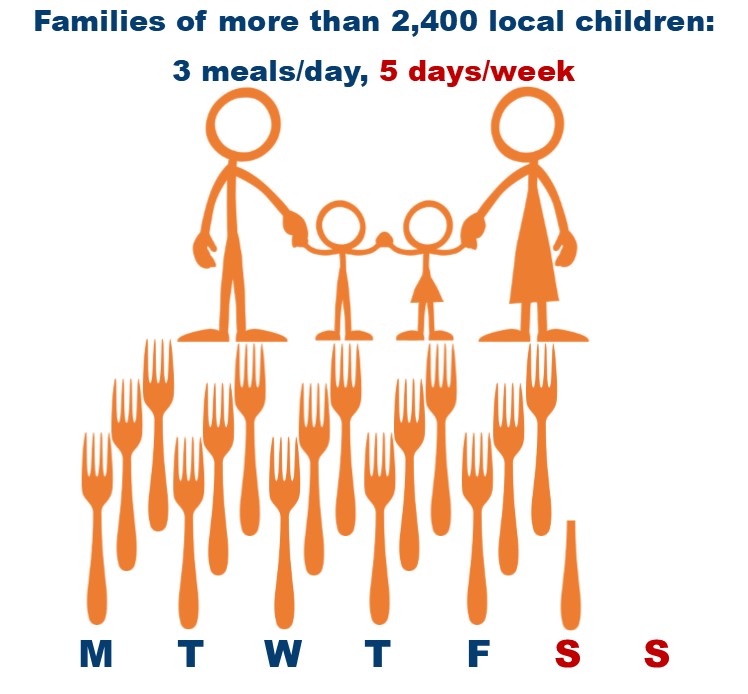
 RSS Feed
RSS Feed